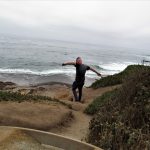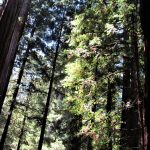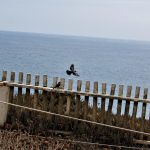Years ago, I read a novel about a young museum curator with a disability. Oh, that’s not completely true. I did not read the entire novel; I read the “Reader’s Digest Condensed Books” version of it. Moreover, the word “disability” had not yet been coined. She described herself as “crippled”.
In the story, the woman met a man who seduced her into believing that she was beautiful. He made vague love to her in the way of novels. You inferred a lot from the veiled references. Over time, she grew to believe in his affection. The walking stick with which she had navigated her days fell into disuse, idle in a corner.
Then, of course, the entire charade crumbled. The museum for which she worked and about which she had been rather more free than prudent in her pillow talk suffered a devastating robbery. The fellow disappeared from her life. She realized her immense folly in believing herself to be loved and lovable. At the end of the story, she grasped the walking stick and resumed her tentative wobble through her days.
After I read this novel, I became obsessed with insuring that I never used a cane to ambulate. At the same time, a creeping nugget of fear began to germinate deep in my soul. You might see that fear as self-pity, but if you did, you would be over-simplifying the complicated relationship which I have with my immutable imperfection.
As the differences between how my body worked and how the bodies of other females work became more marked, I began to notice that people, both men and women, responded with caution to me. This observation first asserted its little gnaw into my awareness early, and deepened as I entered adulthood. I talked about it with my mother late one night. The conversation sticks with me to this day. She urged me to ignore the tauntings and jeerings of young boys who followed me down the street. But she also gave practical advice. She vouchsafed that no one would ever want to marry me. She told me to be sure to get a college degree and pursue a meaningful career. She actively discouraged my pursuit of a writing career; in her mind, it would not afford me the kind of support that I would need as a single woman with “a walking problem”.
Yet she must have had hopes that her prediction would fail. During her last illness, she made a teddy bear like ones she had made for her grandchildren, so that if I did have a child at some point, he or she could have a teddy bear “from Grandma Corley”.
As I aged, doctors urged me to use “an ambulatory device”. In all honesty, doing so poses practical difficulties because of the peculiarities of my CNS deficit. Coordinating a stick challenges me. I’ve told doctors this and they shake their heads. Physical therapists seem to understand but those pesky neurologists caution me every time to employ some device for stability.
I know my resistance has stronger underpinnings than the near-impossibility of coordinating yet another appendage which does not communicate with my brain. The cane took on its putrid symbolism when I read that novel, fifty years ago. Like the woman whose false lover coaxed her into taking his arm to stroll down the city streets, I saw the cane as symbolizing eternal solitude. Others see it as simply a device that might prevent falls and corresponding breaks, and I understand their consternation with my resistance. But still: that’s how I feel.
I brought a walking stick with me to the coast for this visit. I’ve had to use it more recently, since I live in a park with gravel roads and a meadow with uneven ground. My recent hospitalization and corresponding procedure weakened me; I have been tentative in my recovery and admitted that even with the awkwardness of coordinating the device, I would be safer.
Yesterday, I went exploring in the area near the hostel where I am staying. I found a state park and walked in the forest. I sat on a bench provided by the parents of a man whom the commemorative plaque described as dying at age thirty-five. The tribute noted that he had found peace in the surrounding woods. I sat on the bench and wondered about his life. What personal challenges plagued him, that he needed such intense silence in order to calm his soul?
Later in the day, I felt the need to walk. I had treated myself to a restaurant meal and it weighed heavily in my stomach. But my legs felt wobbly, so I did not wish to wander far from the hostel and potential help. I found a narrow path amid the ice plants on the bluff overlooking the cove. I followed the trail to its end, where its creator had formed a switchback to meet itself and carry the walker back to the point of beginning.
I walked the length of it and returned. I used the cane. I could not have completed the journey without its support.
When I logged into social media today, a plethora of birthday greetings overwhelmed me. The slowness of the internet access here inhibited my easy response to all of them. But I felt appreciated. I felt honored. I felt loved.
In my e-mail inbox, I found a survey from the ME/CFS clinic at Stanford which treats my viral condition. I don’t usual complete those surveys because the questions do not feel authentic. They seem to be geared to the person who lies helpless in her bed, succumbing to the overwhelming fatigue which this virus inflicts on its hosts. But I know that the research helps myself and other patients, so I went out to the page and answered the clumsy queries.
One or two questions aimed to determine how isolated patients with ME/CFS feel. Asked to rate the applicability of each statement to your own feelings, you have a choice of gradation between “This is true of me” to “This is not true of me”. One of the statements said, “When I am surrounded by people, I do not feel that they are with me.” I did not hesitate to click the most definite agreement. Then I thought of the walking stick and the woman who wanted to desperately to believe that she could be the object of someone’s desire and affection. I reflected on that yearning for a few moments. I went back to Facebook and read a few more of my birthday greetings.
Then I poured myself another cup of coffee and went to stand by the window. The voice of my Pacific called to me. I let myself get lost in her song.
It’s the fifth day of the fifty-seventh month of My Year Without Complaining. Life continues.






Happiest Birthday ✨Blessings✨ Corinne!